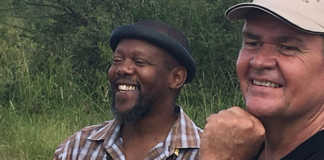Former UN secretary-general Kofi Annan, said that “despite having unrivalled agricultural potential, which could transform Africa into a surplus exporter, Africa in fact spends around US$35 billion [R543 billion] each year importing food”.
Dr Carlos Lopes, executive secretary of the UN Economic Commission for Africa, concurred.
“Integrated regional trade in Africa is very important. Why does Africa import so much processed food every year? We must invest in adding value to Africa’s own agricultural products.” This, he said, would “improve skills, employment, investment and income in Africa – for Africans”.
Fatima Haram Acyl, the African Union Commission’s commissioner for trade and industry, said an important first step was to accurately capture and analyse figures related to existing informal agricultural economies on the continent. These statistics would indicate the potential for more formalised growth in investment in Africa’s agricultural sector.
Developing and formalising Africa’s agricultural economies would also help the continent’s farmers meet the demands of trade agreements such as the US African Growth and Opportunity Act (AGOA) and the EU’s phyto-sanitary standards.
“We must modernise and diversify African agriculture. And making agriculture cool for our youth is very important,” Acyl said.
Paul Bulcke, CEO of Nestlé Gobal, said his company had thousands of smallholder farmer-suppliers in Africa. It was, therefore, in Nestlé’s interests to provide support to them to ensure they remained sustainable.
“But it’s important that when African governments ask for private sector investment, these governments then not try to take over the private sectors’ investment activities. Both governments and private sector businesses have commitments to society, but these commitments are different,” said Bulcke.
Responding to Bulcke’s comments, Côte d’Ivoire’s prime minister, Daniel Kablan Duncan, said multinationals investing in African countries needed to understand the “real needs of these governments and of their people – with the needs of the people being most important.













